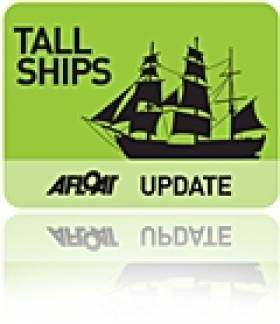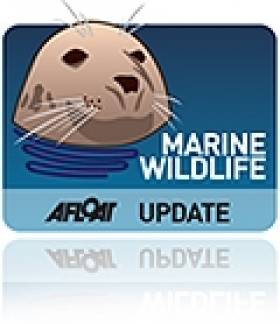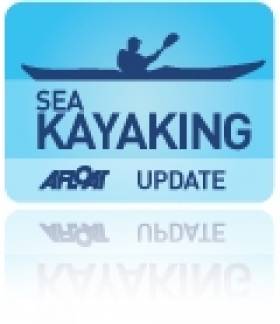Displaying items by tag: mexico
#mexicantallship – Dublin Port Company and the Mexican Embassy in Dublin have announced that one of the world's largest Tall Ships, the 1,800 tonnes, 270 foot long Cuauhtémoc will sail into Dublin Port on Wednesday 17th June for a five day visit to the capital.
In a time honoured naval tradition, the Cuauhtémoc will salute the city just before entering the port with a cannon salute in Dublin Bay. The spectacular vessel will then be met by Dublin Port's tug boats Shackleton and Beaufort as well as a flotilla of yachts from local sailing clubs in a ceremonial escort to mark the ship's arrival at 10am in Dublin Port.
Commanded by Captain Pedro Mata, the Cuauhtémoc is a sail training vessel of the Mexican Navy which travels around the world carrying a message of friendship and goodwill. She will arrive in Dublin with 225 men and women sailors on board - including trainees of different nationalities - who will participate in a five-day programme of engagements in the capital as part of the 40th anniversary celebration of the establishment of diplomatic relations between Ireland and Mexico.
Highlights of the itinerary include an accompanied tour of the city for crew, a visit to the vessel by President Michael D. Higgins and his wife Sabina Higgins on Sunday, and a special performance by 'The Buena Vibra Latin Jazz Trio with the Royal Irish Academy of Music Percussion Ensemble' on board, as well as the San Patricio Mariachi Band.
Dubliners and visitors to the city hoping to get a closer insight into life on board this magnificent vessel will be able to visit for free while she is berthed at Sir John Rogerson's Quay. Opening times to the public are Wednesday 17th – Saturday 20th June between 10.00 and 19.00, and on Sunday 21st June from 10.00 to 15.00. During her last visit to Dublin as part of the Tall Ship Races 2012, the Cuauhtémoc welcomed over 23,000 visitors on board.
Built in the Celaya shipyards in Bilbao, Spain, the Cuauhtémoc was launched in July 1982. She was the last of four windjammers built by Bilbao shipyards and is named after the last Aztec emperor who was imprisoned and executed by the conquistador, Herman Cortes, in 1525. This will be her fourth visit to Irish waters.
Eamonn O'Reilly, Chief Executive of Dublin Port Company, said: "Dublin Port Company is delighted to welcome Cuauhtémoc and her entire crew to Dublin for a very special visit in a significant year for Mexican-Irish relations. Her visit serves as an important reminder of our cultural bond and trading links that have grown from strength to strength over the past 40 years. I would encourage everyone in the city to show the Cuauhtémoc a warm Irish welcome during her stay. It's a fantastic opportunity to explore this magnificent vessel up close and experience first-hand Mexican maritime culture on our doorstep."
The Ambassador of Mexico to Ireland, H.E. Carlos Garcia de Alba said: "2015 marks the 40th anniversary of the establishment of diplomatic relations between Ireland and Mexico. This important milestone in our shared history affords both Mexico and Ireland the opportunity to showcase trade, academic and investment partnerships and to share in artistic and cultural exchanges between our countries. The arrival to Dublin of the Mexican Navy's Tall Ship Cuauhtémoc is just one of the many events to take place that reaffirms the commitment to strengthen the excellent ties of friendship and co-operation between our nations."
Woman Dies After Whale Surfaces On Tourist Boat In Mexico
#MarineWildlife - A Canadian woman has died after a grey whale crashed into a tourist boat off Mexico.
As the Globe and Mail reports, the 45-year-old woman, who has not been named, was in a vessel with a group of tourists heading towards port in Cabo San Lucas when the whale suddenly surfaced on top of the boat.
Two other passengers were injured in the incident yesterday (Wednesday 11 March), according to the Guardian – which also highlights the high number of grey whales recorded in the area as of late by Mexican authorities.
Cabo, a resort town on the southern tip of Mexico's Baja Peninsula, is a popular tourist destination for whale watching and getting close to marine wildlife.
Irish Kayak Couple Honoured with Mexico's Ohtli Award
#kayak – Jim and Maria Kennedy of Atlantic Sea Kayaking have been honoured by the Mexican government with the highest award that can be bestowed on a non Mexican, The Ohtli Award.
This special honour is awarded by the Mexican government to individuals for promoting Mexico abroad. "Ohtli" is the Aztec word for pathway. It has only ever been awarded worldwide to 250 people outside Mexico.
Last year's recipient was the music legend Paddy Moloney who, along with the Chieftains and Ry Cooder recorded the album "The St Patricios" commemorating the Irish Regiment who changed their allegience and fought with Mexico against The United States in the War of Independence.
The award was presented by the Mexican ambassador, Carlos Garcia De Albo during the Mexican Independence Day celebrations at the Clyde Court Hotel in Dublin and was witnessed by about 1000 guests of the embassy including The Lord Mayor of Dublin Oisin Quinn, many ambassadors of other countries as well as family and friends of the Kennedys.
Through their business Atlntic Sea kayaking, Jim and Maria are directly responsible for hundreds of Irish people over the last 25 years having an unforgettable trip of a lifetime to Mexico, and indirectly probably thousands more through their promotional talks and video presentations over Europe.
"It's an easy sell" said Jim after he was presented with the award, "Mexico sells itself with its magnificent natural beauty, fascinating art and culture, wonderful food and more importantly, its passionate and fun loving people."
Atlantic sea kayaking, a homegrown family business founded in 1995, has grown into an International Adventure Travel enterprise. Jim is also an ambassador for Adventure Tourism and The Wild Atlantic Way with Failte Ireland.
This award means that Jim and Maria Kennedy will be lifelong ambassadors and promoters of the delights and charms of Mexico and will continue to forge new links to connect Ireland and Mexico. Their next scheduled tour in Mexico will be February 2014 to witness the Grey Whale migration from Canada.
































































